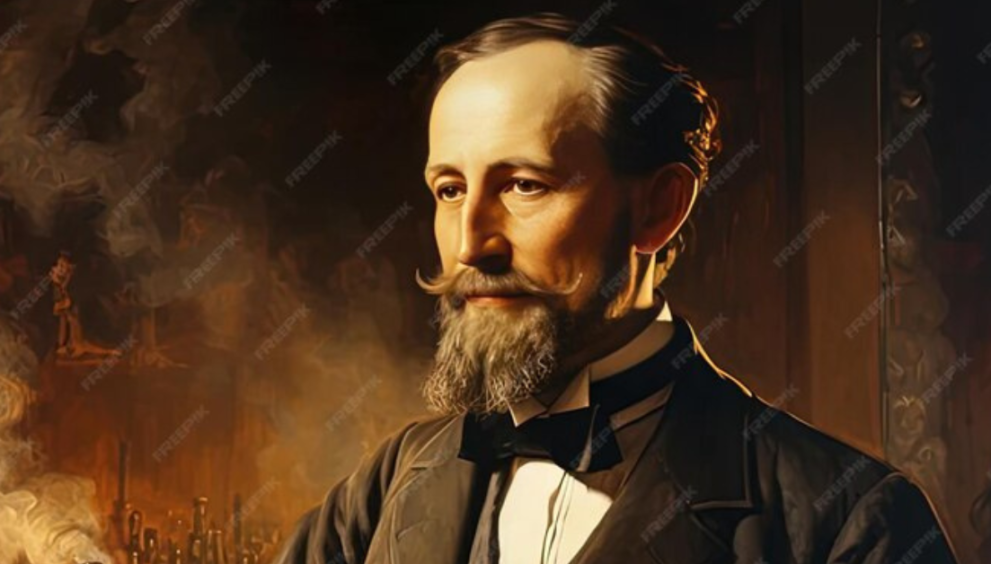Heinrich Servais Germany: A Pioneer of German Engineering and Innovation

Heinrich Servais is a name that resonates with innovation and engineering brilliance in Germany’s industrial history. While the world has celebrated figures such as Carl Benz, Werner von Siemens, and Gottlieb Daimler, Heinrich Servais remains an unsung hero in the annals of German technological advancement. His contributions in mechanical engineering and industrial automation paved the way for future innovations and set high standards in the manufacturing and engineering sectors.
In this article, we’ll delve into Heinrich Servais Germany life, his notable achievements, and how his work helped shape Germany’s industrial landscape. We’ll also explore his lasting legacy in the global engineering field.
Early Life and Education
Born in Bonn, Germany, in 1836, Heinrich Servais grew up in a time when industrialization was rapidly transforming Europe.From a young age, Heinrich exhibited a natural curiosity for mechanical devices. He fascinated himself with how machines worked, often dismantling household gadgets to explore their inner mechanisms. This mechanical inclination, coupled with his keen problem-solving skills, set the stage for his future in engineering.
Heinrich’s family recognized his talents and encouraged his educational pursuits. After excelling in school, he attended the prestigious Technical University of Munich, where he earned a degree in Mechanical Engineering. This period of rigorous academic training laid the foundation for his future groundbreaking work.
Professional Beginnings: The Dawn of Innovation
After graduating, Heinrich Servais began his professional career in the mid-19th century, a time when Germany was becoming an industrial powerhouse.He initially worked for several small manufacturing firms, where he focused on improving production line efficiency. During this period, Servais developed his own innovative mechanical systems to automate tasks that people previously performed manually.
In the 1860s, Heinrich was hired by Siemens, one of Germany’s largest engineering companies. His role in Siemens allowed him to collaborate with some of the brightest minds in the industry, including Werner von Siemens himself. Heinrich quickly rose through the ranks due to his ability to design more efficient machinery, particularly in the realm of electrical automation.
Heinrich Servais and the Automation Revolution
One of Servais’ most significant contributions was in the field of industrial automation. During his time at Siemens, Heinrich spearheaded projects aimed at automating several factory processes, which drastically reduced production time and labor costs. His inventions revolutionized the way factories operated, enabling them to produce goods at a scale never seen before.
Key Innovations in Automation
- The Automated Loom: One of his earliest inventions was an automated loom that could weave textiles at double the speed of traditional looms. This invention was a game-changer for the textile industry, and it was adopted by factories across Europe.
- Conveyor Belt Systems: Heinrich Servais was among the first engineers to implement conveyor belt systems for transporting goods in factories. His innovations in belt speed control and durability contributed to making this system a staple in modern manufacturing.
- Electric Motors for Factories: Perhaps his most significant contribution was his work on electric motors. Servais designed motors that were both more powerful and more efficient than the steam engines used at the time. His innovations in electric motor technology were critical to the mechanization of factories across Europe.
Rise to Prominence in the German Engineering Community
By the 1870s, Heinrich Servais had built a reputation as one of Germany’s most innovative engineers. His advancements in automation had earned him recognition not only in Germany but also across Europe and North America. He was frequently invited to speak at international engineering conferences and was awarded several prestigious engineering awards.
In 1875, Siemens appointed Heinrich as the Chief Engineer, enabling him to push the boundaries of innovation even further.Under his leadership, Siemens developed some of the earliest automated production lines, which set the standard for manufacturing worldwide.
Contributions to Germany’s Industrial Growth
Heinrich Servais’ innovations had a profound impact on Germany’s industrial sector. His work played a critical role in making German factories some of the most efficient in the world. This efficiency, in turn, helped Germany become a leading global exporter of goods in the late 19th and early 20th centuries.
The Role of Servais in the German Economic Miracle
Germany experienced rapid industrial growth in the 19th century, often referred to as the German Economic Miracle, thanks in part to engineers like Heinrich Servais. His inventions and improvements in factory automation allowed Germany to outpace its competitors in terms of manufacturing output.
Thanks to pioneers like Servais, German products became synonymous with quality and precision engineering. His work laid the foundation for industries such as automotive manufacturing, heavy machinery, and electrical equipment, all of which would become cornerstones of the German economy.
Challenges and Setbacks
Like many pioneers, Heinrich Servais faced numerous challenges throughout his career. Financial constraints often hampered his efforts to develop new machines, and he struggled to find investors willing to back his more ambitious projects. Additionally, the rapid pace of technological advancement meant that Heinrich often had to race against time to bring his inventions to market before they became obsolete.
There were also personal challenges. Heinrich was known to be something of a perfectionist, and his relentless pursuit of innovation often strained his relationships with colleagues and family members. Despite these challenges, Servais remained committed to his work, believing that his contributions would have a lasting impact on the world.
Legacy and Influence on Modern Engineering
Heinrich Servais passed away in 1902, but his legacy lives on. Today, he is considered one of the pioneers of mechanical engineering and industrial automation. Many of the principles he developed—such as improving efficiency through automation and the use of electric motors—are still in use today.
Servais’ Influence on Contemporary Engineering
Even in the modern era, Servais’ innovations serve as a foundation for advancements in industrial engineering. Engineers like Heinrich Servais laid the groundwork for the widespread use of automation systems in industries such as automotive manufacturing, aerospace, and electronics.
He also influenced several future generations of engineers.Many students who studied mechanical engineering in Germany during the early 20th century learned about Heinrich’s contributions, and his work served as a case study in the importance of innovation and persistence.
Lessons from Heinrich Servais for Today’s Engineers
Heinrich Servais’ life offers valuable lessons for today’s engineers and innovators. His relentless drive to push the boundaries of technology, despite the obstacles he faced, is an inspiration for anyone looking to make their mark in the world.
Key Takeaways from Servais’ Life:
- Innovation Requires Persistence: Heinrich’s career was marked by both successes and setbacks, but he never gave up. His persistence allowed him to bring transformative innovations to market, even when the odds were against him.
- Collaboration is Crucial: While Servais was a brilliant engineer, many of his greatest achievements came through collaboration with other experts, including his time at Siemens. His story highlights the importance of teamwork and knowledge sharing.
- The Power of Automation: Servais was ahead of his time in recognizing the potential of automation to revolutionize industries. His work laid the groundwork for many of the automated systems that are now commonplace in factories worldwide.
Conclusion: A Lasting Legacy
Heinrich Servais Germany may not be as well-known as some of his contemporaries, but his contributions to engineering and automation had a profound impact on the world. His innovations not only helped propel Germany to the forefront of the industrial revolution but also laid the groundwork for the modern manufacturing processes we rely on today.
As we continue to advance technologically, the pioneering work of engineers like Heinrich Servais serves as a reminder of the power of innovation, persistence, and the human spirit’s capacity to reshape the world. Servais’ name, though not as famous as others, will forever be etched in the history of German engineering excellence.







